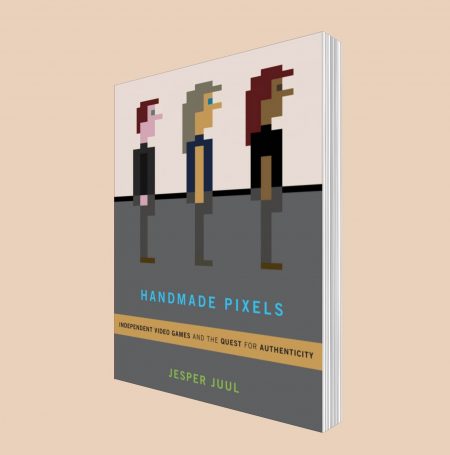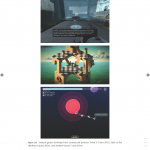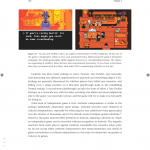 I am thrilled to announce that my new book, Handmade Pixels: Independent Video Games and the Quest for Authenticity, is out today on MIT Press.
I am thrilled to announce that my new book, Handmade Pixels: Independent Video Games and the Quest for Authenticity, is out today on MIT Press.
How can a digital, immaterial, and globally distributed video game be authentic?
Video games are often dismissed as mere entertainment products created by faceless corporations. The last twenty years, however, have seen the rise of independent, or “indie,” video games: a wave of small, cheaply developed, experimental, and personal video games that react against mainstream video game development and culture. In Handmade Pixels, I examine the paradoxical ways developers, players, and festivals portray independent games as unique and hand-crafted objects in a globally distributed digital medium.
 But where did independent games come from? Are they independent, just like cinema and music? I tell the history of independent video games from 1998-2018, and show the ongoing tensions around what indie games should be: Fun games? Games with political impact? Games representing diversity? Are indie games a movement for more democratic games, or do they speak only to a small audience of connoisseurs?
But where did independent games come from? Are they independent, just like cinema and music? I tell the history of independent video games from 1998-2018, and show the ongoing tensions around what indie games should be: Fun games? Games with political impact? Games representing diversity? Are indie games a movement for more democratic games, or do they speak only to a small audience of connoisseurs?
I describe all of this as a continued quest for authenticity – a quest to distance indie games from big publishers, from traditional game form, and from the lack of diversity in big-budget and casual games.
 This is a trade book for a broad audience, but with theoretical underpinnings. It shows many strange new games in detail, it contains stories from my own participation in game jams and conferences, it is lavishly illustrated with more than 100 color pictures, and it features interviews with 21 developers and festival organizers (Jonathan Blow, Anna Anthropy, Bennett Foddy, Simon Carless, Nathalie Lawhead, and more).
This is a trade book for a broad audience, but with theoretical underpinnings. It shows many strange new games in detail, it contains stories from my own participation in game jams and conferences, it is lavishly illustrated with more than 100 color pictures, and it features interviews with 21 developers and festival organizers (Jonathan Blow, Anna Anthropy, Bennett Foddy, Simon Carless, Nathalie Lawhead, and more).
The book took a lot of work, but it was also fun to write, as it gave me the chance to play hundreds of fascinating games, and to connect with interesting people in the independent game community. I hope you will enjoy it too.
Upcoming talks
I will be presenting the book at the NYU Game Center on October 10th, and at IndieCade in Los Angeles on October 12th.
Get the book
Handmade Pixels is available from (preferably?) your local independent bookstore, MIT Press, or any number of online retailers.
Official MIT Press site: https://mitpress.mit.edu/books/handmade-pixels
My own book site, with the full developer interviews. https://www.jesperjuul.net/handmadepixels/


